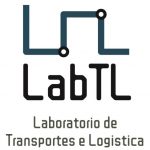Scheduling: Mathematical Modeling and Optimization
Description: Scheduling is an economically important step for a number of productive sectors, such as manufacturing industry manufacturing, cargo transportation, operating system computational processes, crew scheduling, ship loading, collection and distribution. products and etc. Among the main types of production scheduling problems is the sequencing problem in machines with production delay penalty (GOMES JÚNIOR, 2007); and its resolution implies reduction of costs generated with delay. This delay in production leads to delays in delivery of the final product to the customer, leading to possible loss of the product. In an increasingly competitive and competitive economic environment, industries need to be increasingly efficient to stay on the market. The use of optimization solutions has proven to be a great alternative to reduce production costs without losing the quality of the final product delivered to the customer. Today’s manufacturing systems tend to become increasingly flexible to adapt to product diversification needs. Such a system, such as the flexible manufacturing system, consists of a number of automatic machines, material handling devices such as autonomous mobile robots (AMR), and a centrally controlled computer. AMRs can move around in your workspace to transport components between machines and in some cases can also perform various value-added tasks without human intervention thanks to their manipulating arms. In order to use these manufacturing systems efficiently, it is necessary to schedule the transportation of product components by mobile robots and to schedule product processing on machines, possibly by mobile robots. In this sense the innovation of this work is in the consideration of three interrelated subproblems that must be solved. These include calculating the sequence of operations on machines, assigning robots for transport, and assigning robots for processing. To solve the problem we propose a mixed integer linear programming model (MIP) and present a computationally efficient hybrid heuristic method combining meta heuristic algorithms considering the minimization of makespan. The quality of hybrid heuristic solutions is compared and evaluated using the MIP model as reference points.
Teachers:







